News
-
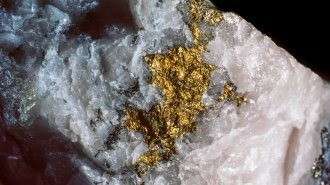 Earth
EarthHow earthquakes build beefy gold nuggets
The strain imparted by an earthquake can generate voltages in quartz veins that stimulate the mineralization of gold.
By Nikk Ogasa -
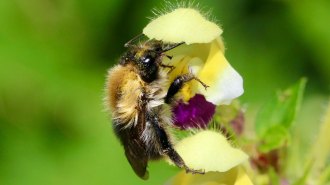 Animals
AnimalsBumblebees lose most of their sense of smell after heat waves
A few hours in high temps reduced the ability of antennae to detect flower scents by 80 percent. That could impact the bees’ ability to find food.
-
 Health & Medicine
Health & MedicineA new drug shows promise for hot flashes due to menopause
Two clinical trials found that the nonhormonal drug elinzanetant eased hot flashes and improved sleep, two common menopause symptoms.
-
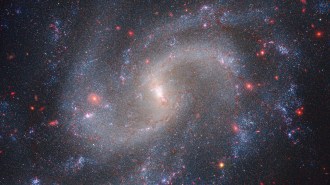 Cosmology
CosmologyIn an epic cosmology clash, rival scientists begin to find common ground
Different measurements of the cosmic expansion rate disagree. The James Webb telescope could determine whether that disagreement is real.
-
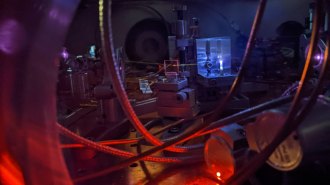 Physics
PhysicsA nuclear clock prototype hints at ultraprecise timekeeping
Nuclear clocks could rival atomic clocks and allow for new tests of fundamental physics. A new experiment demonstrates all the ingredients needed.
-
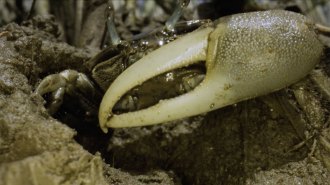 Environment
EnvironmentFiddler crabs are migrating north to cooler waters
The crabs are climate migrants and could be a harbinger of changes to come as more species move in.
By Luke Groskin -
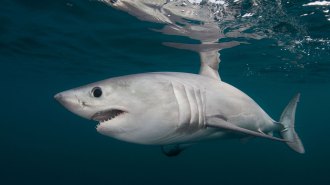 Animals
AnimalsScientists piece together clues in a shark ‘murder mystery’
A missing porbeagle shark was likely killed by a great white. It’s the first known case of adult porbeagles being hunted by a predator, scientists say.
By Jason Bittel -
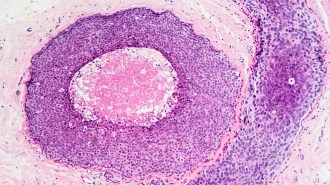 Health & Medicine
Health & MedicineWhat is ‘Stage 0’ breast cancer and how is it treated?
Actress Danielle Fishel's diagnosis has raised awareness of a condition that affects about 50,000 U.S. women annually.
-
 Space
Space2 spacecraft caught the waves that might heat and accelerate the solar wind
Data from NASA’s Parker Solar Probe and ESA’s Solar Orbiter might have cracked an enduring solar riddle. But not everyone yet agrees.
By Adam Mann -
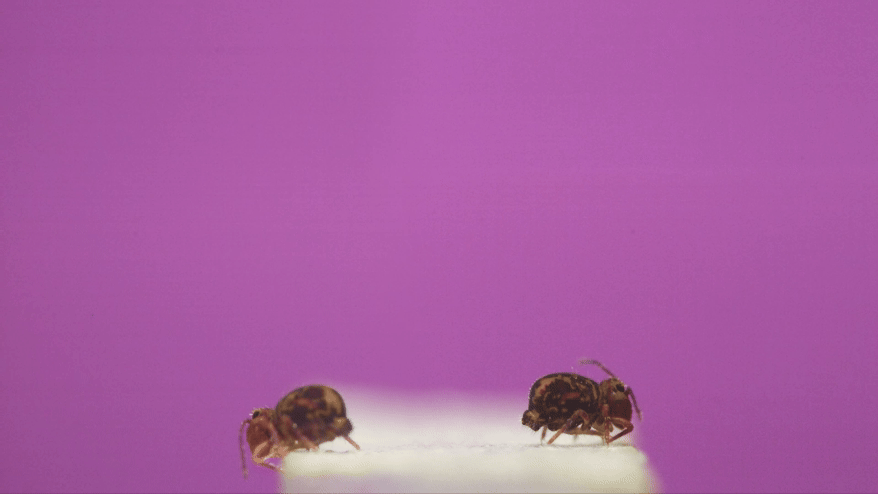 Animals
AnimalsHere’s how an arthropod pulls off the world’s fastest backflip
While airborne, globular springtails can reach a spin rate of 368 rotations per second, high-speed camera footage shows.
-
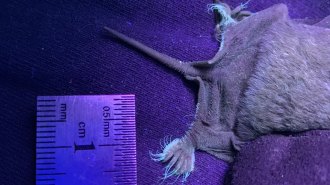 Animals
AnimalsIn a first, these bats were found to have toes that glow
Hairs on the toes of Mexican free-tailed bats fluoresce under UV light, a new study reports. The function of the toe glow is unknown.
By Jason Bittel -
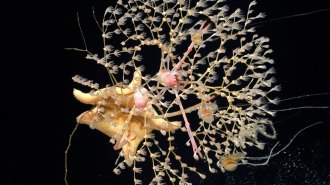 Life
LifeRemote seamounts in the southeast Pacific may be home to 20 new species
A recent expedition to the intersection of two undersea mountain chains has revealed a new seamount and a rich world of deep-sea biodiversity.
By Jake Buehler